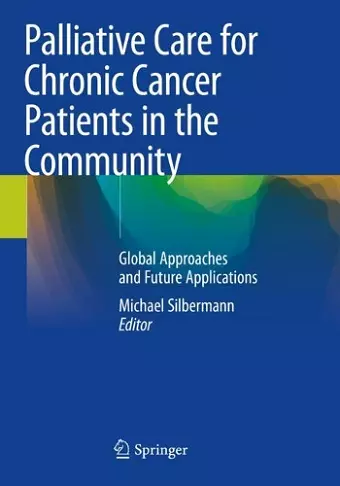Palliative Care for Chronic Cancer Patients in the Community
Global Approaches and Future Applications
Format:Paperback
Publisher:Springer Nature Switzerland AG
Published:31st Oct '21
Currently unavailable, our supplier has not provided us a restock date
This paperback is available in another edition too:
- Hardback£179.99(9783030545253)

The new global cancer data suggests that the global burden has risen to 18.1 million new cases per year and 9.6 million cancer deaths per year. A number of factors appear to be driving this increase, in particular, a growing and aging global population and an increase of exposure to cancer risk factors linked to social and economic development. For rapidly-growing economies, the data suggests a shift from poverty- or infection-related cancers to those associated with lifestyles more typical in industrialized countries. There is still large geographical diversity in cancer occurrence and variations in the magnitude and profile of the disease between and within world regions. There are specific types of cancer that dominate globally: lung, female breast and colorectal cancer, and the regional variations in common cancer types signal the extent to which societal, economic and lifestyle changes interplay to deferentially impact on the profile of this most complexgroup of diseases.
Unfortunately, despite advances in cancer care, a significant proportion of patients at home, experience sub-optimal outcomes. Barriers to successful treatment outcomes include, but are not limited to: access to oncologists in the primary health centers, non-adherence, lack of experienced oncology and palliative care nurses in the community, inadequate monitoring and the lack of training of family and pediatric physicians. Telemedicine approaches, including telephone triage/education, telemonitoring, teleconsultation and status tracking through mobile applications, have shown promise in further improving outcomes, in particular for chronic cancer patients following their hospitalization.
Lessons can be learned from existing hospices in North America, the United Kingdom, Australia, Centers of Excellence in African (Uganda) and modern community services in India (Kerala). An important goal of this book is to describe and encourage professionals to develop new community programs in palliative care, which include training and empowering physicians and nurses in the community on the principles of palliative care. The Middle East Cancer Consortium (MECC) together with the American Society of Clinical Oncology (ASCO) and the American Oncology Nursing Society (ONS) have conducted multiple courses ranging from basic palliative care to more specialized training in palliative care for multiple nationalities in Europe, Asia and Africa. Our experience clearly indicates that, to promote such activities, one needs strong leadership and confirmed political will to support the endeavor. The new...
ISBN: 9783030545284
Dimensions: unknown
Weight: unknown
599 pages
2021 ed.